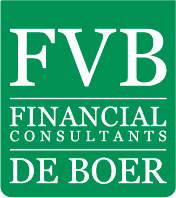Mortgages in the Netherlands
Buying a house is always a complicated process and buying a house in the Netherlands can get a whole lot trickier if you do not speak or read the language. Here is an overview of what you need to know about Dutch mortgages.
I would like adviceDifferent types of mortgage
There are several types of mortgage in the Netherlands but only two are eligible for a tax break on your interest payments: the annuity and the linear mortgage.
A linear mortgage is a type of mortgage involving a fixed monthly payment. The payment is determined by dividing the loan amount by the number of payments. The debt and interest payments decrease over time until the mortgage is fully paid off at the end of the term.
An annuity mortgage, also known as a repayment mortgage, is a type of home loan in which the borrower pays a fixed monthly amount that includes both interest and repayment of the principal. These combined payments are known as the ‘annuity’. The monthly payments remain consistent throughout the loan term.
If you are looking to buy a property as an investment, you will need a buy-to-let mortgage which has been specifically designed for individuals who intend to purchase a property for the purpose of renting it out to tenants.
There are various other types of mortgage in the Netherlands based on investments, savings and bank loans.
Three steps to finding the right mortgage
There are several things to take into account when deciding what mortgage is right for you, and our experts can help you look into the various options.
Step 1: Think about what is more important to you – knowing how much you will pay every month or flexibility to deal with the unexpected.
Step 2: Imagine yourself in the future. Do you expect your salary will continue to rise or are you considering early retirement? Are you planning to have a family, or are you likely to be moved to another country within a few years? All these factors will have an impact on the best mortgage for you.
Step 3: Find a financial advisor you feel comfortable with and who is experienced in dealing with the specific needs of expats. Ask friends or colleagues for advice, or make an appointment with one of FVB de Boer’s team of experts.
Special conditions attached to mortgages for expats
When applying for a mortgage in the Netherlands, you will be subject to the same conditions as any Dutch citizen. You have to work and live in the Netherlands to be entitled to a Dutch mortgage, and your mortgage provider will ask for standard information such as your income, the value of the property, your employment contract and marital status. You will also need to have a citizen service number (BSN).
If you are not from the EU or EEA (European Economic Area), a residence permit, (verblijfsvergunning) is mandatory. Some financial institutions may have additional requirements for foreign applicants. They may, for example, require you to have lived in the Netherlands for a period of at least six months.
If you are self-employed, you will need to present your income history for 24 or 36 months. The process is pretty straightforward and the longer you’ve been self-employed, the more likely it is you’ll get a mortgage.
Tailor-made advice from FVB de Boer
Our experts can help you estimate your mortgage costs and monthly payments based on your personal circumstances and the Dutch mortgage system.
Unlike many mortgage advisors, FVB De Boer Consultants does not provide an online mortgage calculator. This is because online mortgage calculators can only offer an estimate of your borrowing capacity and often fail to consider the complexities surrounding expat mortgages, such as:
- Income sources, including foreign currency, above the basic salary, such as holiday pay, 13th month, fixed year-end bonus (not tied to company performance), and commission/overtime based on the average of the previous 12 months.
- Different tax rules and regulations may apply to your particular situation
- The impact of the 30% ruling
A personal consultation with one of our experienced mortgage advisors will give you a more accurate overview of how much you can expect to borrow by taking factors such as interest rates, repayment terms, and fees into account.
By using our mortgage calculator services, you can make informed decisions about which mortgage provider is best suited to your needs. Please contact us for an accurate calculation of how much you can borrow.
Why use FVB de Boer Financial Consultants?
Our mortgage advisors have a long track record of working with expats. They understand the unique needs of expat borrowers and the challenges they face.
Our track record is second to none. We have been helping international workers get a mortgage in the Netherlands and with other financial issues since 1998.
Our office is completely independent when giving advice. We have no contractual obligation of any kind to advise you to choose the financial products of certain lenders or insurers. We do work with a number of preferred providers but we decide who they are. So you can be sure we put your interests first.
Contact us
If you would like to find out more about how our experts can help you finance your dream home, please get in touch.
Frequently asked questions about an Annuity mortgage
Which mortgage suits the expat best, depends on his/her lifestyle and personal circumstances.
With some Dutch mortgages, you have to start paying off the loan immediately along with the interest, whereas other mortgage types allow you to postpone repayments and only pay the interest instead.
In 2013 there were some important changes in the way mortgages are taxed, and therefor nowadays the only types of mortgages that are still eligible for the interest tax deduction (renteaftrek) are the annuities and linear mortgage models, whereby the loan needs to be repaid within 30 years via monthly repayments.
Alternative Dutch mortgage models are mainly variations on annuities and linear mortgages. However, if you take out one of these mortgage forms, you may no longer be entitled to mortgage tax relief.
Types of mortgages:
- Annuities mortgage (annuïteitenhypotheek)
- Linear mortgage (lineaire hypotheek)
In order to quickly assess the feasibility of you getting a mortgage and the an indication of the amount you can borrow we would need the following information:
- A recent salary slip (or one each if you are both working)
- Do you have any loans or other financial obligations
- What are your savings and/or other assets
- It will be necessary nowadays to put a modest amount of your own cash into the house/mortgage. What amount would you prefer to put in as down payment?
The time it takes to have a mortgage application approved differs a lot per client and per mortgage provider. Therefor it is hard to say within which time frame the mortgage is arranged, but since we work really quickly it can be as fast as within one week. But typically the complete process of arranging an mortgage should take somewhere between 2-4 weeks.
Activities conducted by FVB De Boer in arranging a suitable mortgage:
- Discuss your (financial) situation and draw up a more detailed overview.
- Analyze your personal financial situation, your knowledge and experience with mortgages, your objectives and willingness to take risks.
- Discuss the existing mortgage structures and explain your maximum mortgage and the monthly mortgage payments involved.
- Assess the affordability of the mortgage payments in the event of occupational disability, unemployment or death.
- Advise on the most suitable mortgage structure, repayment method and how to cover risks. The advisory report includes calculations.
- Discuss and explain the advice given by our office and answer any questions you might have.
- Apply for offers with available banks.
- Verify/compare offers and advise on the best propositions.
- If necessary, arrange to have your house valued.
- Arrange for a bank guarantee to be issued, if applicable.
- Collect and screen the documents required to effect the mortgage.
- If necessary, discuss once more the recommended financial products.
- Maintain contact with the bank(s) in order to reach a final agreement on the intended mortgage.
- Maintain contact with the civil-law notary until date of transfer.
- Check the civil-law notary’s preliminary completion statement and communicate corrections., but in most cases after we have we should be able to secure you mortgage within .
After-sales service
Our after-sales service includes the activities which we are expected to perform by virtue of the Financial Services Act. It basically means that we will inform you about any significant (legislative) changes in your financial products. If additional advice is required, then we will charge you an hourly rate of € 150 (exempt from VAT). This hourly rate will be invoiced if after arranging the mortgage, you need our (extensive) advice on the insurance required in order to hedge any risks you might be facing in case of occupational disability, unemployment or death.
Changes
Any relevant changes in your personal circumstances that would have an impact on your financial situation, we need to be informed about as soon as possible
How can we help you?

José de Boer
Financial Advisor
Give us the call and let our team help you plan
the next financial step in your life
Other Services
Mortgage Advisors
At FVB de Boer, we have established good working relationships with a number of Dutch banks to help you realize your dream property.
Home Insurance
FVB de Boer helps you to secure your property with building and fire insurance or home contents insurance for the short or long term.



